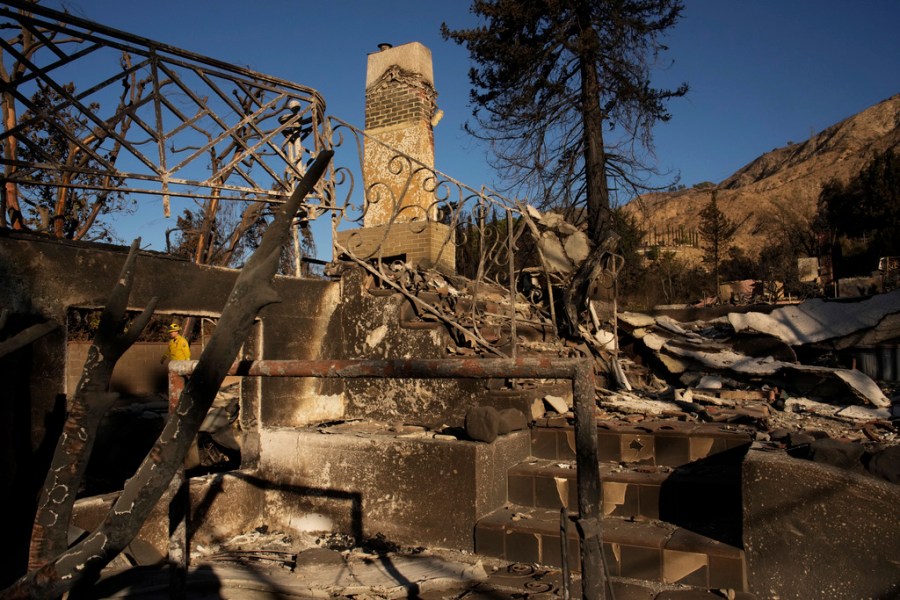
Last Tuesday morning, I saw a billow of smoke rise across the canyon. My husband quickly called the authorities, and we were told it was a 20-acre fire in the Palisades. The fire wasn’t large, but it was dangerously close. Within ten minutes, we left our house. It was surreal — that moment when the hypothetical question, “What would you take if your house were on fire?” suddenly became all too real. I took nothing.
The embers are still burning, and we remain evacuated. The winds are expected to pick up, and while our home is currently intact, it remains in the line of fire. Still, I know I am one of the fortunate ones — a climate refugee staying in a comfortable hotel.
As the fires rage on, Los Angeles and its surrounding areas are already grappling with the aftermath of another devastating wildfire season. The pressing questions are being asked: how to help those who have lost everything, how to rebuild, and, unfortunately, who to blame? A familiar but misguided narrative has emerged that poor management by local leaders is to blame.
It is easy to assign blame to politicians, but this overlooks the much larger and undeniable culprit — climate change.
The year 2024 has been declared the hottest on record, capping a decade of unprecedented heat and drought. These conditions have transformed vegetation into tinderboxes, ready to ignite. In Southern California, the infamous Santa Ana winds exacerbate the danger. These powerful gusts — which can exceed 100 mph — fan flames across parched landscapes, turning small sparks into massive infernos. This deadly combination of heat, drought and wind, not political mismanagement, is the primary driver of the destruction.
Critics often underestimate the scale of the challenge when assessing wildfire responses. Fire suppression, forest management and emergency preparedness — while critical — cannot combat the sheer force of climate-fueled disasters. Rising temperatures and prolonged droughts have extended fire seasons by nearly three months since the 1970s, leaving California in a near-constant state of fire risk. Millions of drought- and pest-killed trees add even more fuel to these wildfires, compounding the danger. These conditions are not the result of negligence but the predictable consequences of a warming planet.
California’s leaders have taken meaningful steps to address fire risks. Measures like controlled burns, updated building codes and expanded firefighting resources are crucial parts of the state’s strategy. Yet even the most proactive policies cannot keep pace with the scale and frequency of today’s wildfires. Climate change is simply outpacing our efforts.
Pointing fingers across the political aisle is a distraction from the systemic solutions urgently needed. The devastating fires in Los Angeles are not just a regional disaster — they are a wake-up call to the world. They highlight the necessity of addressing climate change, not just as an environmental issue but as an existential threat to human safety and infrastructure. Wildfires are not isolated incidents; they are symptoms of a global crisis. Treating them as such is the only way to prevent disasters of this magnitude in the future.
It should be noted that California is not the only state being confronted with increasing destruction from climate change. In 2024, Hurricane Helene struck Florida as a Category 4 hurricane with sustained winds of 140 mph. The storm caused widespread flooding, power outages affecting approximately 1.3 million residents, and resulted in 26 fatalities in Florida. Just weeks later, 32 Floridians died in Hurricane Milton.
In the face of this escalating emergency, the blame game is a luxury we can no longer afford. The science is clear: Climate change is the primary driver of these extreme weather events, including California’s worsening wildfires. By focusing on root causes and demanding systemic action, we can work toward a future where communities are better protected, and the devastating toll of wildfires is mitigated. Anything less is simply fanning the flames.
Wendy Abrams is the co-founder and CEO of the Eleven Eleven Foundation, dedicated to sustainability, education, medical research and social justice.












